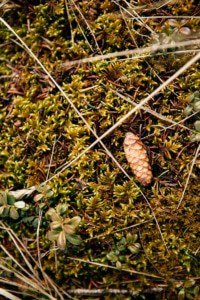| Funding: | $160,000 |
| FRIAA Participant: | Millar Western Forest Products with Inside Education and Alberta Environment and Parks |
| Status: | Ongoing |
Education is an important part of the Forest Resources Improvement Program (FRIP). Forests and forestry are often unfamiliar to those outside the industry, and the complexities can be overlooked. Millar Western and FRIAA have partnered together on many education projects in the past and decided to do so again in order to grow public knowledge about Alberta’s forests.
In 2016, Millar Western connected with Inside Education and several other groups to help deliver the Urban Forest Education Program with the help of FRIP funding.
Teaching young people more about Alberta’s forests helps create engaged stewards now and into the future. The goal with all of our FRIP forest education programs is to find fun and effective ways to inform students and the public about forest ecosystems, integrated land use, and our shared responsibility to ensure forest sustainability,” says Janet Millar, communications director at Millar Western.
Many of Millar Western’s educational projects are delivered to rural classes, but in this case, they were interested in reaching an urban audience.
“It’s important that we reach all Albertans. Students in urban settings are more removed from forests compared to rural students,” explains Janet. “We wanted to give them the chance to experience forestry education even if they don’t live near a forest.”
Millar Western reached out to Inside Education to deliver the programs. Inside Education is a non-profit organization specializing in environmental and natural resource education; they have been working with FRIAA, Millar Western and other forest industry partners for decades. “Part of what makes Inside Education so special is that they give a balanced perspective of the topic that they are teaching. So, when it comes to forestry they give industry perspectives, government perspectives, and environmental organization perspectives,” says Janet. “They allow students to see the full picture and encourage them to engage in critical thinking.”
In the 2015-16 school year, the Urban Forest Education Project gave over 2100 students the chance to experience Alberta’s forests through two unique programs: Urban Forest Classroom Education Program and Cooking Lake Forest Field Program. Both programs are free for students to participate and both are designed to fit into Alberta’s curriculum.

The in-class portion brings an interactive forest education program into urban schools. Students get to participate in sessions that help them to develop a sense of responsibility for Alberta’s forest resource. In the field program, students get to learn in a one-of-a-kind classroom. They spend a full day on-site at the Cooking Lake-Blackfoot Provincial Recreation Area, exploring the natural environment and learning about land use, forest products, and forest stewardship.
“This program is extremely well received by teachers and students,” explains Kathryn Wagner, Inside Education’s Program Director. “The program was fully subscribed 24 hours after it was announced, and teachers have given it a nine out of ten rating on satisfaction surveys.”
One unique feature that differentiates this program from other forest education programs is the emphasis on forestry. “We make it more relevant to Alberta by bringing in the forest industry connection. How does the forest resource fit into industry, the economy, land use, etc.? How can we harvest sustainably? We consider these things on top of ecosystems and environment,” says Kathryn.
The primary takeaway that we want students to leave with is that there are so many different stakeholders on every landscape – forest industry, energy industry, municipalities, recreational and traditional users. We want students to start thinking about themselves as one of those stakeholders within the forest sector,” explains Kathryn. “Students will often have that ‘aha’ moment when they start to piece together the bigger picture, and they realize that they have a role in maintaining sustainable forests in Alberta.”
FRIAA funding, along with industry contributions, has allowed this program to be offered at no cost to participants. FRIAA is proud to help make forests and forestry more accessible to all Alberta students.
